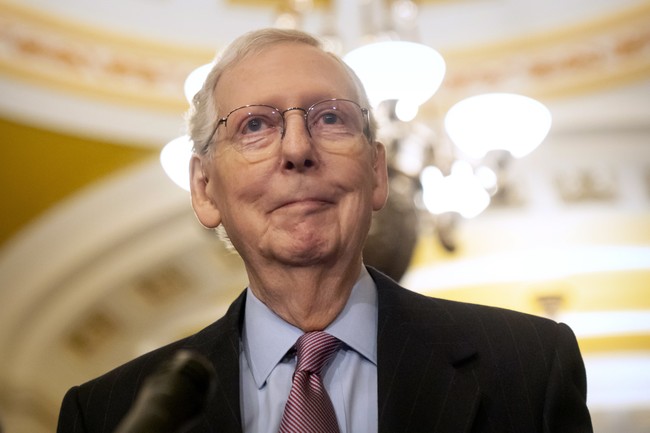Mitch McConnell: A Conclusive Look at His Political Legacy
Mitch McConnell's decision to retire marks the end of an era that shaped American politics. Explore his storied career, influence on the judiciary, and turbulent relationship with Donald Trump.
Published February 21, 2025 - 00:02am

Image recovered from redstate.com
Mitch McConnell, the stalwart Republican senator from Kentucky and the longest-serving leader in U.S. Senate history, has decided not to seek reelection, signaling an imminent conclusion to his notable tenure in American politics. This pivotal announcement on his 83rd birthday marks the end of a political era characterized by strategic brilliance and a significant influence on the judiciary and legislative processes.
Entering the Senate in 1985, McConnell has witnessed the transitions of seven U.S. presidencies, maneuvering through various political climates. A master of Senate rules, he earned a reputation for his shrewd political strategies, often ensuring the alignment of Republican ideals with legislative outcomes. His leadership, beginning in 2007, is credited with significant impacts on the judiciary, including the refusal to process Merrick Garland's Supreme Court nomination and the swift confirmations of Justices Gorsuch, Kavanaugh, and Barrett. This strategic maneuvering has left a lasting conservative imprint on the judiciary, influencing landmark rulings on abortion and affirmative action.
During the Trump administration, McConnell played a protective role, organizing majorities to support the president's agenda, despite personal disagreements at times. However, his relationship with Trump was not without turbulence. McConnell's criticism over Trump's role in the Capitol riot on January 6, 2021, led to a notable rift. Yet, they previously collaborated effectively on tax reforms and judicial appointments. McConnell described blocking Garland's nomination as his consequential achievement, a viewpoint many conservative applauded.
Beyond the judiciary, his tenure included pivotal actions and inactions that exerted profound influence on American policy. McConnell was instrumental in pushing through tax cuts and protecting the Senate from radical legislative changes. However, his stance against Trump's vaccine appointments and Secretary nominations revealed an evolving dynamic as the Republican Party increasingly embraced Trump's populist rhetoric. McConnell, steadfast in his support for Ukraine, continued to advocate for American military strength, often standing contrary to the isolationist tendencies gaining traction in the GOP.
As McConnell signals his departure by January 2027, speculation arises regarding his potential successors. Key figures like Daniel Cameron and Rep. Thomas Massie are considered strong candidates for his Senate seat, underlining a potential continuation or divergence from McConnell's legacy. His decision also highlights changing dynamics within the Republican Party and sets the stage for a competitive primary in Kentucky, a state where McConnell's influence has been profoundly felt.
His departure underscores a shift in Republican leadership amidst an evolving political landscape. As McConnell exits, his legacy of strategic conservatism intertwined with contentious political maneuvers and his adept navigation of Senate rules stands undeniably etched in the annals of U.S. political history. From overcoming childhood polio to becoming a power broker, McConnell's political journey resonates with resilience and a calculated pursuit of Republican principles.







